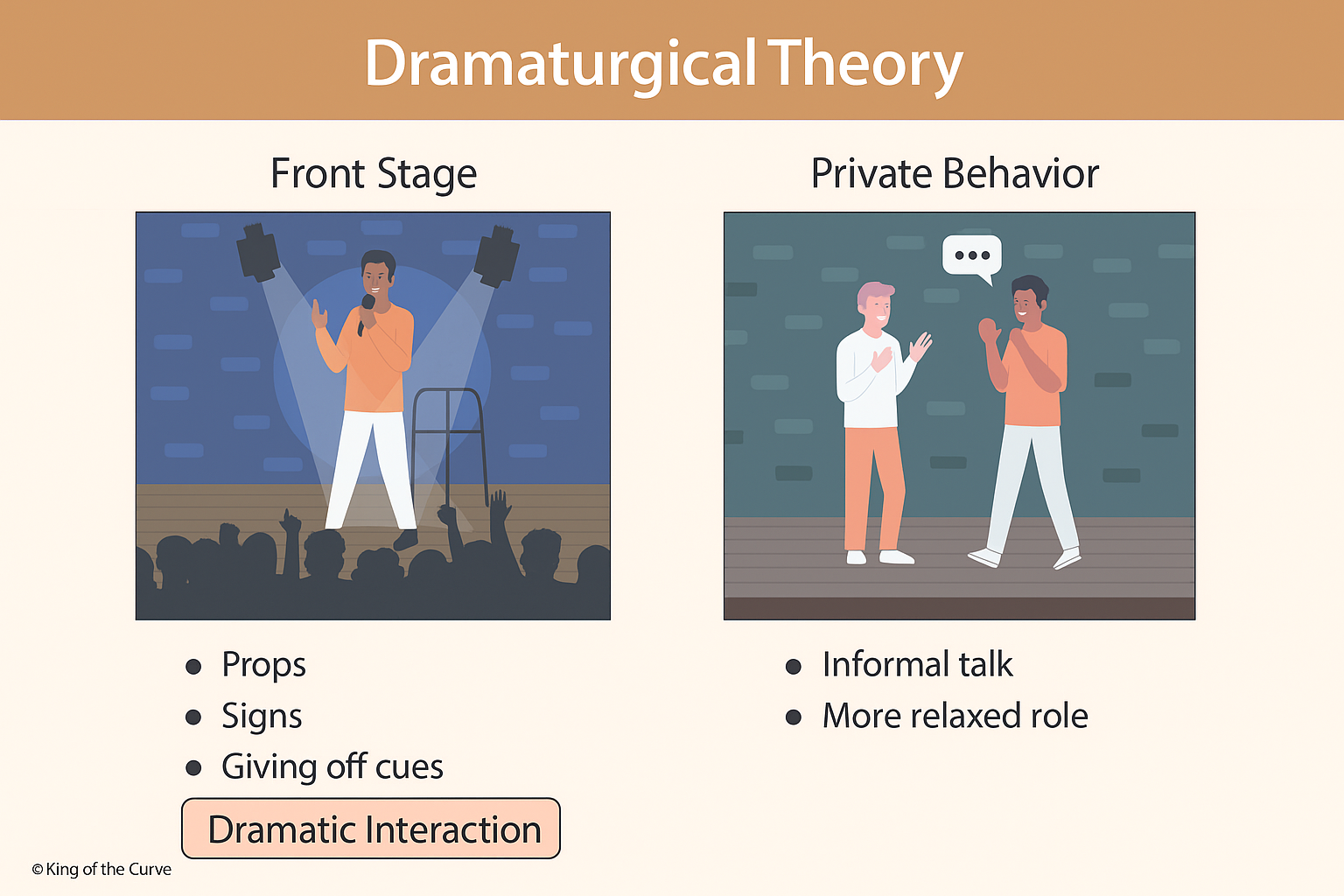🎭 Dramaturgical Theory: Life as a Stage on the MCAT
Dramaturgical Theory, proposed by sociologist Erving Goffman, compares everyday social interaction to a theatrical performance. According to this theory, we all play roles and manage impressions as if we’re actors performing on a stage.
🧠 This is an MCAT favorite — especially when discussing self-presentation and symbolic interactionism.
🎬 Core Concepts Table
| Stage | Definition | Examples |
|---|---|---|
| Front Stage | Public-facing self, deliberate performance for others | Job interviews, classroom participation |
| Back Stage | Private behavior shown when audience is gone | Relaxing with friends, expressing real thoughts |
🔎 MCAT Breakdown
🟠 Front Stage
Managed behavior for others
Use of props (like clothing, setting)
Giving off cues and signs
Think: performance mode
🟢 Back Stage
Comfort zone, less scripted
Informal, candid behavior
Think: relaxed self
🎓 Application in Real Life
| Situation | Front Stage Behavior | Back Stage Behavior |
|---|---|---|
| Clinical Shadowing | Polite, professional tone with staff | Casual venting with friends afterward |
| Medical School Interview | Polished responses, formal appearance | Nervous prep talk or emotional release alone |
| Social Media Post | Curated photos and captions | Unfiltered reflections offline |
🧠 MCAT Tip
Dramaturgical theory questions often ask:
“Which sociological concept explains the difference in behavior when the subject is alone versus in public?”
✅ Answer: Dramaturgical Approach (Symbolic Interactionism)
📘 Conclusion
The dramaturgical perspective reminds us that context shapes behavior. On the MCAT and in medicine, recognizing the difference between what people show and how they truly feel is critical for building empathy and understanding social dynamics.
🚀 Call to Action
Like learning this through visuals?
🎯 Access hundreds more psychology & sociology illustrations, daily drills, and adaptive MCAT prep at King of the Curve.
📲 Start free at kingofthecurve.org/mcat
Frequently Asked Questions (FAQs)
-
Aim for 4-6 focused hours, ensuring you incorporate breaks to avoid burnout.
-
Practice mindfulness techniques, take practice exams under realistic conditions, and maintain a balanced lifestyle.
-
Set short-term goals, seek support from mentors, and reward yourself for small achievements.
-
Regular exercise improves focus, reduces stress, and enhances overall mental clarity.
-
KOTC offers personalized learning tools, gamification features, and adaptive question banks to help students stay on track without burnout.


